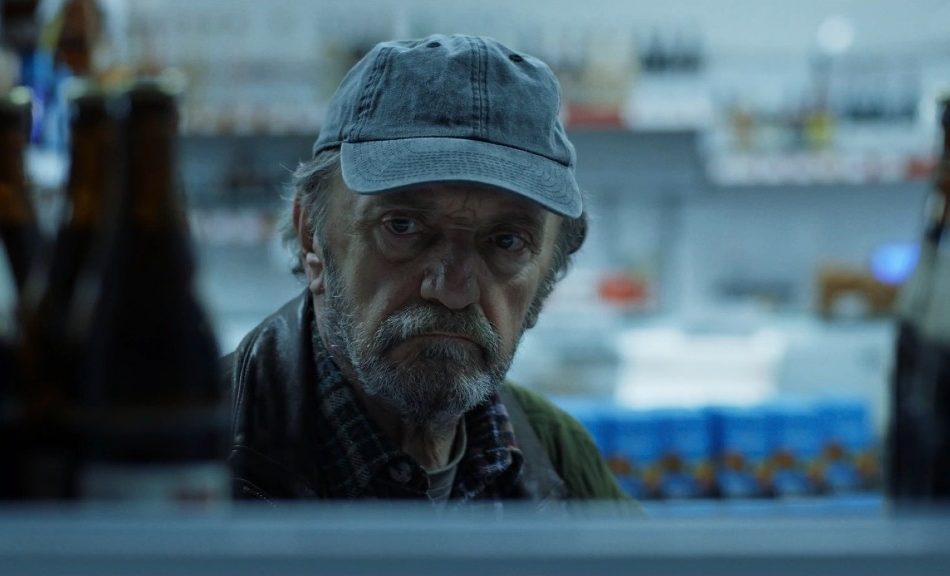A Movie Night in Budapest: Some Birds

László Szacsvay in Some Birds (2023)
Probably the best remedy to a rainy Budapest can be offered by a cosy, cinephile art cinema, one that gives warmth – in any literal or metaphorical sense for that matter – such as Puskin Mozi. What particularly stood out upon arriving to see Hungarian film director Dániel Hevér’s 2023 feature debut, Some Birds – which takes place mostly at a nursing home thematising the dilemmas of self-care in later age – was that the majority of the cinema’s stuff was composed by elderly ladies, who did their respective jobs immaculately. Despite its rather schematic screenplay, Some Birds might be the most relevant contemporary Hungarian film that showcases the inevitably hard transition between Third and Fourth age – the age of self-reliance and the age of needed assistance.
A retiree in his 70s, Béla (László Szacsvay) likes to lead his daily life routines in an accustomed manner and certainly, he cannot be blamed for that. But due to a quite severe accident at home, Máté (Péter Valcz), Béla’s emigrant son from Germany, must reconsider his father’s condition. Being run out of any other viable options, he decides to move Béla into a nursing home. The particularly stubborn Béla causes much trouble for the caretakers and acts cold with his peers, for he is desperate to get his old life back. To his surprise, he finds an ‘accomplice’ in Zoé (Lilla Kizlinger), an equally rebellious and solitary teenage girl, who was sentenced to public work and got into Béla’s nursing home. Together they form an unusual pair or a reasonably usual one in terms of a cinematic trend, which displays seemingly odd young-old pairings (see Up, A Man Called Ove or Living). Nevertheless, this East Central European take on the ‘unusual pair’ adds its own flavour to the mix by creating a complex and less clean-cut fictional world, filled with dilemmas that won’t leave us even after the end credits roll.
One such dilemma becomes palpable through Béla’s fight to get out of the nursing home. Since Some Birds is a very character-driven narrative, it is no wonder that the audience initially perceives the situation through Béla’s eyes. It is ambiguous whether the facility’s stern director is indeed determined to help Béla or she is just motivated by the paycheck he represents. Máté, the kind but inattentive son’s decision to rent out the flat of Béla feels rather cruel, enhancing the idea that Béla might be a victim of circumstances. Was he incorrectly determined as a man, who cannot take care of himself? Are the major changes in Béla’s life really serving him? On a more universal level, Some Birds draws attention to the volatility of self-care – framing it as an ability, which gradually disappears. In this context, the most crucial question relates to the involvement of others (relatives, nurses and institutions) in one’s care and the timing of this involvement. If it is too soon, the agency and rights of the ageing person are hurt, but if it is too late, the ageing person’s condition may deteriorate faster, even resulting in a fatal accident.
Apart from Béla’s fight for homecoming, the film allocates screen time to the residents of the nursing home, as well. Hence, a quite large ensemble cast will be formed – Péter Barbinek and László Ujréti among others – almost exclusively representing the elderly. We learn that most of the residents consider the nursing home the subservient of communal sense, a place, where active social life can still be conducted. Furthermore, the screenplay gently alludes to the fact that the residents’ connectedness is not merely based on their age. As ‘shareholders’ of cultural memory, the residents develop an instant sense of belonging, having experienced the Hungarian Revolution of 1956 and the dissolution of the Soviet Union. Their respective stories may differ, nevertheless, these historical shifts had major impacts on everybody’s life. Thus, one might affirm that an ‘elderhood’ is created in the nursing home of the film, a community based on a shared past and present.
Some Birds eyes for the periphery by placing the focus on a retiree and a teenager – both from disadvantaged backgrounds – with much empathy and thoughtfulness. While Zoé is in a transition period herself, forced by her environment to grow up fast, Béla’s transition consists of the acceptance of the Fourth Age. He transcends the stereotype of the grumpy old man since his anger and disappointment are completely understandable and justified. Overall, Hevér’s debut is a must-watch for all children, whose loved ones are getting closer to the age of needed assistance and, of course, for the elderly, who may feel seen by this heartfelt film.
Written by: Boglárka Angéla Farkas
Image credit: Some Birds (Valami madarak), directed by Dániel Hevér, produced by Filmfabriq, 235 Film Productions and Sparks, 2023.
Related films: Some Birds (Valami madarak), directed by Dániel Hevér, produced by Filmfabriq, 235 Film Productions and Sparks, 2023.
All the videos on this page are not hosted on the AGE-C Portal server but are only inserted as links.
All copyrighted materials included on this website are used for educational purposes in accordance with fair use guidelines.